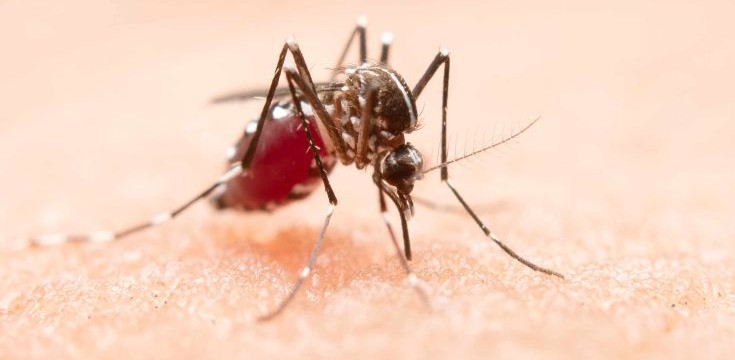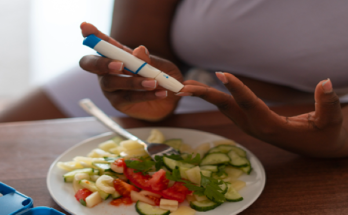According to the World Health Organization (WHO), there were an estimated 263 million malaria cases worldwide in 2023, resulting in 597,000 deaths. The African region carries the heaviest burden, with 94% of cases and 95% of deaths, most in children under five. Locally, deaths have fallen by more than 90% in the past two decades, but malaria remains a pressing public health concern in endemic areas, and myths about the disease continue to put lives at risk.
Understanding Malaria
Malaria is caused by Plasmodium parasites, transmitted to humans through the bites of infected female Anopheles mosquitoes. Symptoms usually appear 10–15 days after infection and include fever, chills, sweating, fatigue, and headaches. If untreated, the disease can progress rapidly to severe illness, organ failure, and death.
While anyone can contract malaria, children, pregnant women, travellers, and people with weakened immune systems are most at risk. Prompt diagnosis and treatment are essential, ideally within 24 hours of the first symptoms.
Myth 1: Malaria is just like the flu.
Fact: While malaria may begin with flu-like symptoms such as fever, chills, and headaches, it is far more dangerous. Unlike flu, malaria will not resolve on its own and requires urgent antimalarial treatment. Without proper medication, it can be fatal.
Myth 2: Malaria only happens in remote villages.
Fact: Malaria risk is not confined to isolated rural areas. Mosquitoes breed in stagnant water, which is common in both towns and cities within malaria zones. Urban communities remain vulnerable, especially during peak transmission periods.
Myth 3: Once you’ve had malaria, you can’t get it again.
Fact: Having malaria once does not make you immune. Reinfections are common, even for people living in high-risk areas who may develop only partial resistance. Children, pregnant women, and travellers are particularly vulnerable to repeat infections.
Myth 4: Natural remedies such as garlic, vitamins, or traditional herbs can prevent malaria.
Fact: There is no scientific evidence that home remedies prevent malaria. Effective prevention methods include insecticide-treated bed nets, indoor residual spraying, and prophylactic medication when travelling to risk areas.
Myth 5: Malaria spreads from person to person.
Fact: Malaria is not contagious through casual contact, coughing, sneezing, or food. It is only spread by bites from infected Anopheles mosquitoes, contaminated needles, or blood transfusions.
Myth 6: Malaria is only a rainy-season disease.
Fact: While transmission peaks during the rainy season, mosquitoes can survive year-round in warm, humid environments. This means the risk of malaria does not disappear outside of the rainy months.
Myth 7: If there’s no fever, it can’t be malaria.
Fact: Fever is a common symptom, but not always present. Malaria can also cause fatigue, diarrhoea, nausea, and anaemia. Severe cases can progress rapidly, even when fever is mild or absent—which is why testing and early treatment are essential.
Myth 8: Malaria isn’t a problem anymore.
Fact: While malaria cases and deaths have decreased dramatically over the past two decades, the disease has not been eliminated. People living in, or travelling to, malaria-prone regions remain at risk and should always take precautions.
Proven Prevention Strategies
Simple but effective steps can help protect you and your family from malaria, especially when living in or travelling to high-risk areas:
- Sleep under insecticide-treated nets (ITNs): Using a treated mosquito net at night is one of the most effective ways to prevent malaria. For children, this can cut the risk of infection by almost half.
- Indoor residual spraying (IRS): Regularly spraying the inside walls of homes with approved insecticides reduces the number of mosquitoes that survive long enough to spread malaria.
- Take preventive medication when advised: Travellers to malaria areas, as well as vulnerable groups such as pregnant women and young children, should use prescribed antimalarial medication. Always consult a healthcare provider before travelling.
- Eliminate mosquito breeding spots: Clear away standing water in buckets, tyres, gutters, and containers. Keeping yards and communities clean reduces mosquito breeding grounds.
- Act quickly if symptoms appear: Anyone experiencing fever, chills, or flu-like symptoms after visiting a malaria zone should get tested immediately.
This Malaria Day, remember: malaria is preventable, treatable, and curable when facts—not myths—guide decisions, and with services like Affinity Health’s 24/7 telehealth GP consultations and nationwide healthcare network, you can get the proper care when you need it most.




